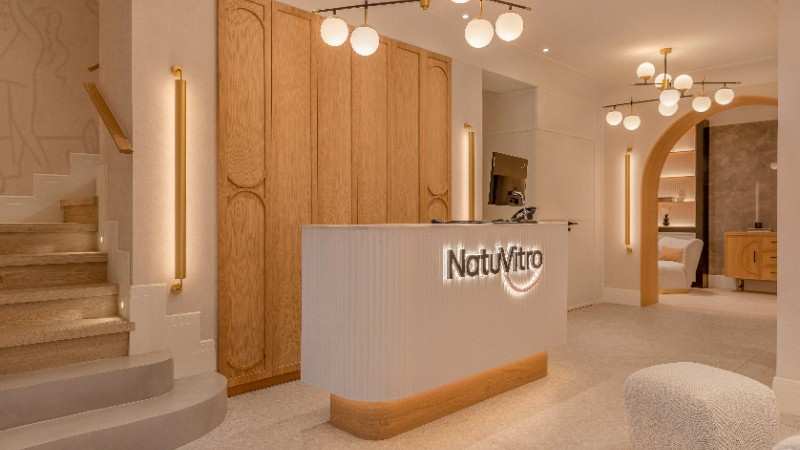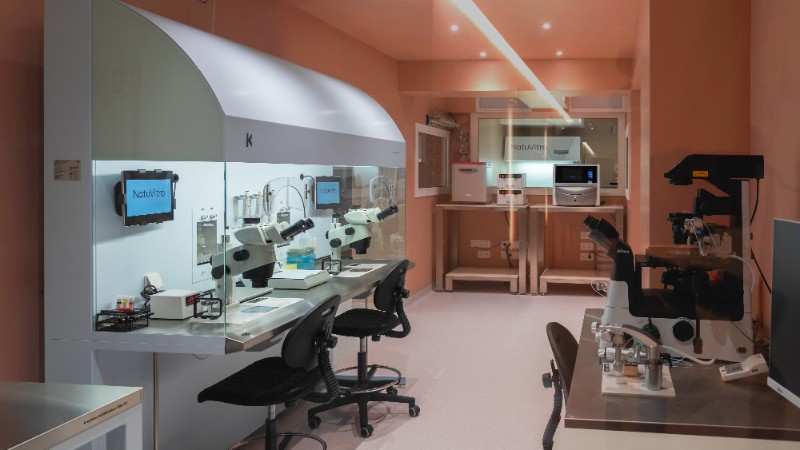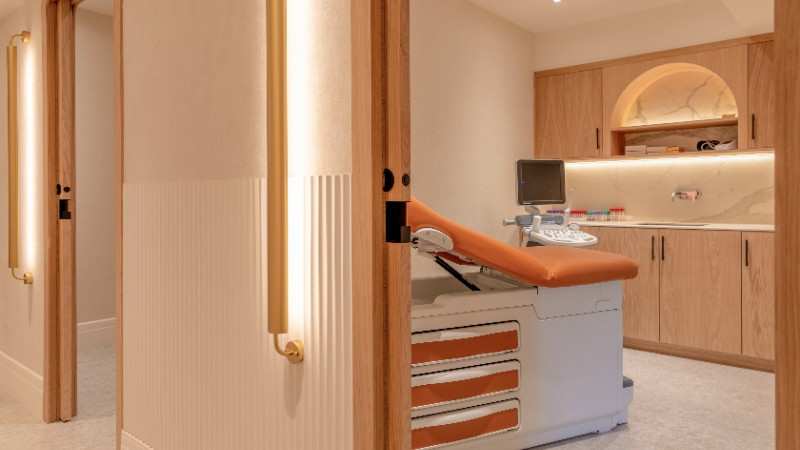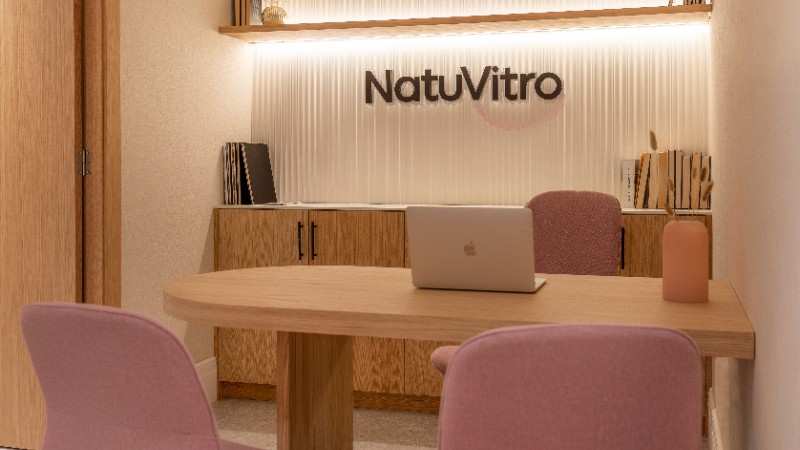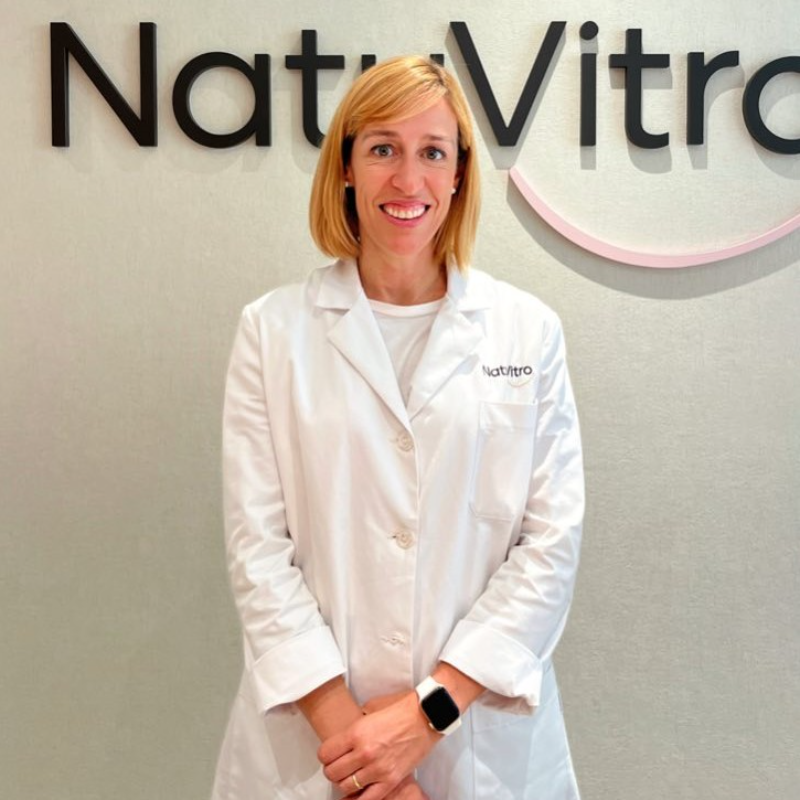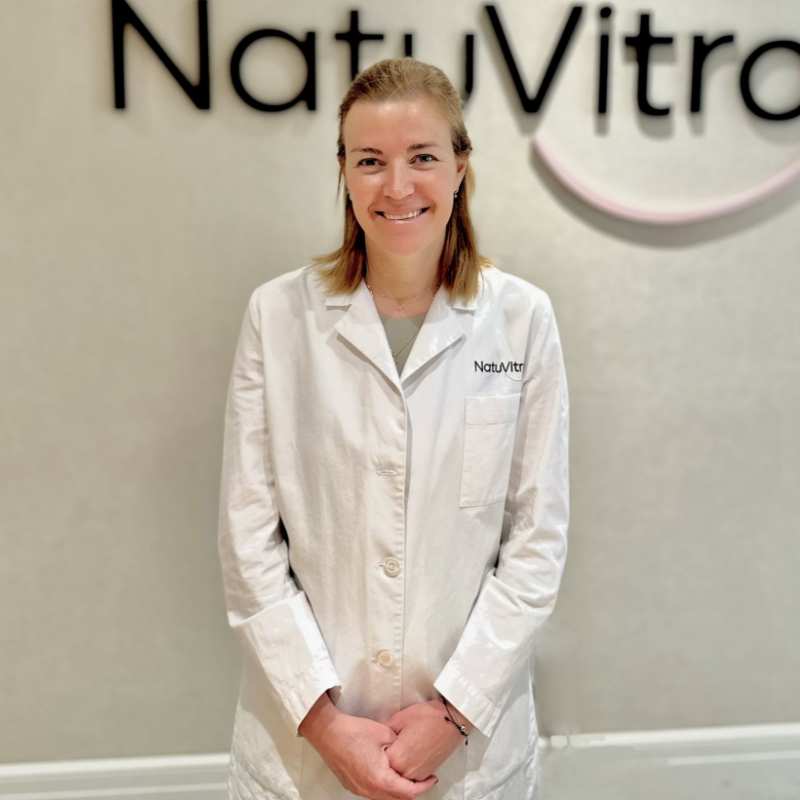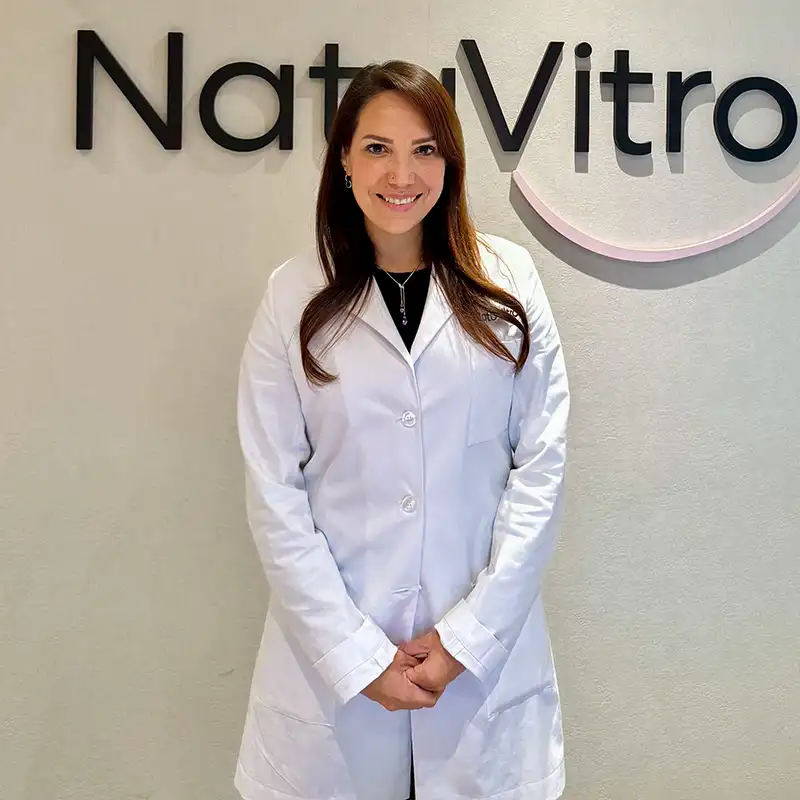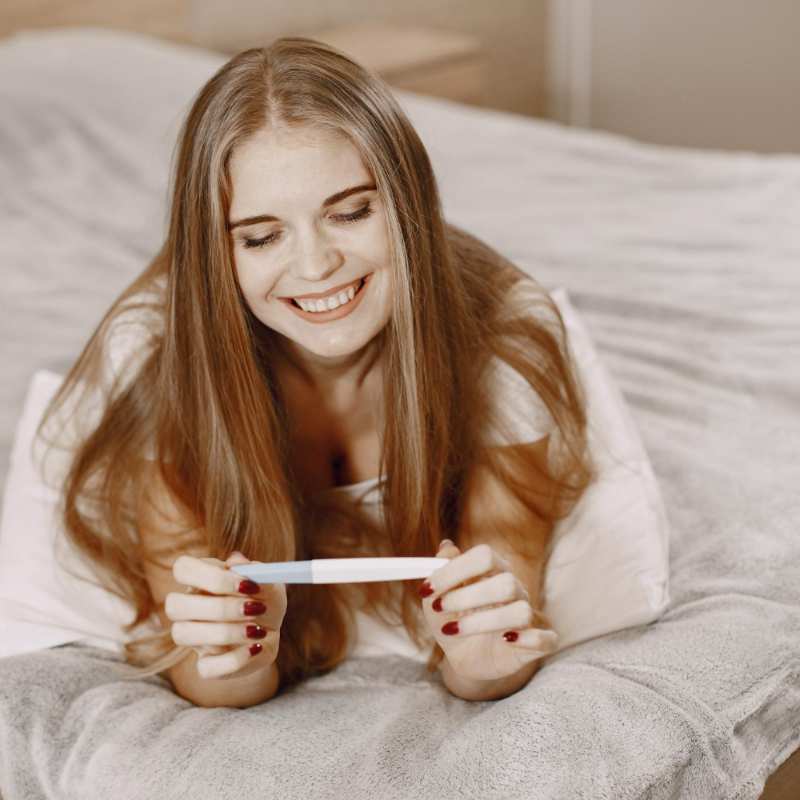
Egg donation is one of the most reliable and effective techniques in the field of assisted reproductive technologies. It consists of performing IVF using eggs from carefully selected anonymous donors.
These eggs are fertilized with the partner's sperm or with donor sperm, after which embryos are formed. The laboratory-cultured embryos are transferred into the uterus of the recipient woman, allowing pregnancy even in cases where using her own reproductive cells is impossible or ineffective.
Our medical center has its own donor bank, established according to strict health and psychological stability criteria. Each donor undergoes a comprehensive examination, including medical and psychological aspects. This guarantees the safety and high quality of the biological material. It is important to note that egg donation is anonymous, which ensures the protection of the donor's, the recipient family’s, and the future child's interests. Anonymity is a fundamental principle that preserves confidentiality and helps avoid potential legal and emotional complications in the future.
Indications for the use of donated eggs
The use of eggs from donors is recommended in a number of medical and genetic situations. These include:
- premature menopause or exhaustion of ovarian reserve, when the woman's body can no longer produce mature eggs;
- congenital anomalies of the reproductive system development, such as Turner syndrome;
- the consequences of surgical interventions, chemotherapy, or radiotherapy resulting in irreversible ovarian changes;
- the presence of severe genetic diseases in the woman or man with a high risk of transmission to the unborn child;
- inability to obtain good-quality embryos through IVF with her own eggs;
- repeated and unsuccessful fertility attempts, confirming the limited potential of her own eggs.
Thus, the donation program becomes a true solution for women who, for medical reasons, cannot conceive using their own reproductive cells.
How does the treatment program proceed?
During the donor selection, phenotypic similarity is taken into account: eye color, hair color, morphology, and other physical characteristics, in accordance with Spanish law. This minimizes differences between the donor and the recipient woman. After a thorough examination, the donor undergoes a superovulation stimulation program aimed at obtaining the largest possible number of eggs.
For fertilization, fresh or vitrified (frozen) eggs can be used. Modern cryopreservation methods at -196°C allow cells to be preserved without quality loss. Using fresh eggs requires synchronization of the donor's and recipient's menstrual cycles, which can complicate the process and require extra time. Using frozen cells is more convenient because it eliminates the need for synchronization and allows the procedure to be performed at the most suitable time for the patient.
After fertilization, embryos are cultured for 5 to 6 days in the laboratory. At this stage, a preimplantation genetic test (PGT) can be performed to detect any chromosomal abnormalities and select the most viable embryos for pregnancy. A carefully selected single embryo is transferred into the uterus, while others can be frozen for future attempts.
Requirements for egg donors
International standards developed by ESHRE and ASRM specify that an egg donor should be a woman under 35, free from serious illnesses, and in good physical and mental health. The NatuVitro clinic has implemented even stricter internal rules: the donor cannot be over 30 years of age. This policy helps ensure high-quality eggs and reduces age-related risks.
Medical examination of donors
Each donor undergoes a comprehensive medical exam, including:
- genetic tests: karyotype, Fragile X syndrome analysis, mutations of genes responsible for spinal muscular atrophy, thalassemia, cystic fibrosis, inherited hearing loss;
- blood tests in the laboratory: HIV, RW, hepatitis B and C;
- serological tests for antibodies against toxoplasmosis, rubella, cytomegalovirus, and herpes virus;
- comprehensive screening for sexually transmitted infections;
- psychiatric and psychological assessment;
- ECG and chest X-ray.
This wide range of examinations helps exclude any health risks for the recipient and the future child, and ensures a high level of reliability of the donation program.
Contraindications for donation
The program excludes women with serious illnesses. Specifically, donors are not accepted if they:
- have been diagnosed with cancer;
- suffer from severe cardiovascular disorders;
- are carriers of hereditary diseases;
- have sexually transmitted infections;
- have severe liver or kidney pathologies;
- suffer from mental disorders;
- are alcoholics or drug addicts.
This ensures that our donor bank consists exclusively of women in perfect health, meeting the highest quality standards.
Number of eggs provided
In a cycle, the patient is guaranteed to obtain at least 8 mature eggs, with an average of around 11. This number provides a high potential for obtaining quality embryos and increases the chances of pregnancy success from the first attempt.
Effectiveness of the treatment program
Statistics confirm that using eggs from donors is significantly more effective than standard IVF. At NatuVitro, a clinical pregnancy is achieved on the first attempt in 71% of cases after transferring a single embryo and in 85% after a preimplantation genetic test (PGT-A). These results are due to the high quality of donor eggs and strict medical control at all stages of the program.
Thus, egg donation is an effective, safe, and accessible method to overcome infertility. It offers couples who have experienced years of failures and disappointment a chance to become parents. Participation in the program not only leads to pregnancy but also guarantees the birth of a healthy child.
On our blog, you can also read the article Choosing an Egg Donor, which details the selection process, legal nuances, and emotional aspects faced by families opting for this program.
Our experts are ready to examine your case history, clarify your choices, and address every question you have.
Don't wait to make informed decisions – your personalized guidance awaits!
- Spain (España)+34
- France (La France)+33
- Italy (Italia)+39
- United Kingdom+44
- United States+1
- Belgium (België)+32
- Switzerland (Schweiz/Suisse)+41
- Germany (Deutschland)+49
- Netherlands (Nederland)+31
- Afghanistan (افغانستان)+93
- Albania (Shqipëri)+355
- Algeria (الجزائر)+213
- American Samoa+1
- Andorra+376
- Angola+244
- Anguilla+1
- Antigua and Barbuda+1
- Argentina+54
- Armenia (Հայաստան)+374
- Aruba+297
- Ascension Island+247
- Australia+61
- Austria (Österreich)+43
- Azerbaijan (Azərbaycan)+994
- Bahamas+1
- Bahrain (البحرين)+973
- Bangladesh (বাংলাদেশ)+880
- Barbados+1
- Belarus (Беларусь)+375
- Belize+501
- Benin (Bénin)+229
- Bermuda+1
- Bhutan (འབྲུག)+975
- Bolivia+591
- Bosnia and Herzegovina (Босна и Херцеговина)+387
- Botswana+267
- Brazil (Brasil)+55
- British Indian Ocean Territory+246
- British Virgin Islands+1
- Brunei+673
- Bulgaria (България)+359
- Burkina Faso+226
- Burundi (Uburundi)+257
- Cambodia (កម្ពុជា)+855
- Cameroon (Cameroun)+237
- Canada+1
- Cape Verde (Kabu Verdi)+238
- Caribbean Netherlands+599
- Cayman Islands+1
- Central African Republic (République centrafricaine)+236
- Chad (Tchad)+235
- Chile+56
- China (中国)+86
- Christmas Island+61
- Cocos (Keeling) Islands+61
- Colombia+57
- Comoros (جزر القمر)+269
- Congo (DRC) (Jamhuri ya Kidemokrasia ya Kongo)+243
- Congo (Republic) (Congo-Brazzaville)+242
- Cook Islands+682
- Costa Rica+506
- Côte d’Ivoire+225
- Croatia (Hrvatska)+385
- Cuba+53
- Curaçao+599
- Cyprus (Κύπρος)+357
- Czech Republic (Česká republika)+420
- Denmark (Danmark)+45
- Djibouti+253
- Dominica+1
- Dominican Republic (República Dominicana)+1
- Ecuador+593
- Egypt (مصر)+20
- El Salvador+503
- Equatorial Guinea (Guinea Ecuatorial)+240
- Eritrea+291
- Estonia (Eesti)+372
- Eswatini+268
- Ethiopia+251
- Falkland Islands (Islas Malvinas)+500
- Faroe Islands (Føroyar)+298
- Fiji+679
- Finland (Suomi)+358
- French Guiana (Guyane française)+594
- French Polynesia (Polynésie française)+689
- Gabon+241
- Gambia+220
- Georgia (საქართველო)+995
- Ghana (Gaana)+233
- Gibraltar+350
- Greece (Ελλάδα)+30
- Greenland (Kalaallit Nunaat)+299
- Grenada+1
- Guadeloupe+590
- Guam+1
- Guatemala+502
- Guernsey+44
- Guinea (Guinée)+224
- Guinea-Bissau (Guiné Bissau)+245
- Guyana+592
- Haiti+509
- Honduras+504
- Hong Kong (香港)+852
- Hungary (Magyarország)+36
- Iceland (Ísland)+354
- India (भारत)+91
- Indonesia+62
- Iran (ایران)+98
- Iraq (العراق)+964
- Ireland+353
- Isle of Man+44
- Israel (ישראל)+972
- Italy (Italia)+39
- Jamaica+1
- Japan (日本)+81
- Jersey+44
- Jordan (الأردن)+962
- Kazakhstan (Казахстан)+7
- Kenya+254
- Kiribati+686
- Kosovo+383
- Kuwait (الكويت)+965
- Kyrgyzstan (Кыргызстан)+996
- Laos (ລາວ)+856
- Latvia (Latvija)+371
- Lebanon (لبنان)+961
- Lesotho+266
- Liberia+231
- Libya (ليبيا)+218
- Liechtenstein+423
- Lithuania (Lietuva)+370
- Luxembourg+352
- Macau (澳門)+853
- North Macedonia (Македонија)+389
- Madagascar (Madagasikara)+261
- Malawi+265
- Malaysia+60
- Maldives+960
- Mali+223
- Malta+356
- Marshall Islands+692
- Martinique+596
- Mauritania (موريتانيا)+222
- Mauritius (Moris)+230
- Mayotte+262
- Mexico (México)+52
- Micronesia+691
- Moldova (Republica Moldova)+373
- Monaco+377
- Mongolia (Монгол)+976
- Montenegro (Crna Gora)+382
- Montserrat+1
- Morocco (المغرب)+212
- Mozambique (Moçambique)+258
- Myanmar (Burma) (မြန်မာ)+95
- Namibia (Namibië)+264
- Nauru+674
- Nepal (नेपाल)+977
- New Caledonia (Nouvelle-Calédonie)+687
- New Zealand+64
- Nicaragua+505
- Niger (Nijar)+227
- Nigeria+234
- Niue+683
- Norfolk Island+672
- North Korea (조선 민주주의 인민 공화국)+850
- Northern Mariana Islands+1
- Norway (Norge)+47
- Oman (عُمان)+968
- Pakistan (پاکستان)+92
- Palau+680
- Palestine (فلسطين)+970
- Panama (Panamá)+507
- Papua New Guinea+675
- Paraguay+595
- Peru (Perú)+51
- Philippines+63
- Poland (Polska)+48
- Portugal+351
- Puerto Rico+1
- Qatar (قطر)+974
- Réunion (La Réunion)+262
- Romania (România)+40
- Russia (Россия)+7
- Rwanda+250
- Saint Barthélemy+590
- Saint Helena+290
- Saint Kitts and Nevis+1
- Saint Lucia+1
- Saint Martin (Saint-Martin (partie française))+590
- Saint Pierre and Miquelon (Saint-Pierre-et-Miquelon)+508
- Saint Vincent and the Grenadines+1
- Samoa+685
- San Marino+378
- São Tomé and Príncipe (São Tomé e Príncipe)+239
- Saudi Arabia (المملكة العربية السعودية)+966
- Senegal (Sénégal)+221
- Serbia (Србија)+381
- Seychelles+248
- Sierra Leone+232
- Singapore+65
- Sint Maarten+1
- Slovakia (Slovensko)+421
- Slovenia (Slovenija)+386
- Solomon Islands+677
- Somalia (Soomaaliya)+252
- South Africa+27
- South Korea (대한민국)+82
- South Sudan (جنوب السودان)+211
- Spain (España)+34
- Sri Lanka (ශ්රී ලංකාව)+94
- Sudan (السودان)+249
- Suriname+597
- Svalbard and Jan Mayen+47
- Sweden (Sverige)+46
- Syria (سوريا)+963
- Taiwan (台灣)+886
- Tajikistan+992
- Tanzania+255
- Thailand (ไทย)+66
- Timor-Leste+670
- Togo+228
- Tokelau+690
- Tonga+676
- Trinidad and Tobago+1
- Tunisia (تونس)+216
- Turkey (Türkiye)+90
- Turkmenistan+993
- Turks and Caicos Islands+1
- Tuvalu+688
- U.S. Virgin Islands+1
- Uganda+256
- Ukraine (Україна)+380
- United Arab Emirates (الإمارات العربية المتحدة)+971
- Uruguay+598
- Uzbekistan (Oʻzbekiston)+998
- Vanuatu+678
- Vatican City (Città del Vaticano)+39
- Venezuela+58
- Vietnam (Việt Nam)+84
- Wallis and Futuna (Wallis-et-Futuna)+681
- Western Sahara (الصحراء الغربية)+212
- Yemen (اليمن)+967
- Zambia+260
- Zimbabwe+263
- Åland Islands+358
Visit our clinic
Location
Call us now
Leave a message
